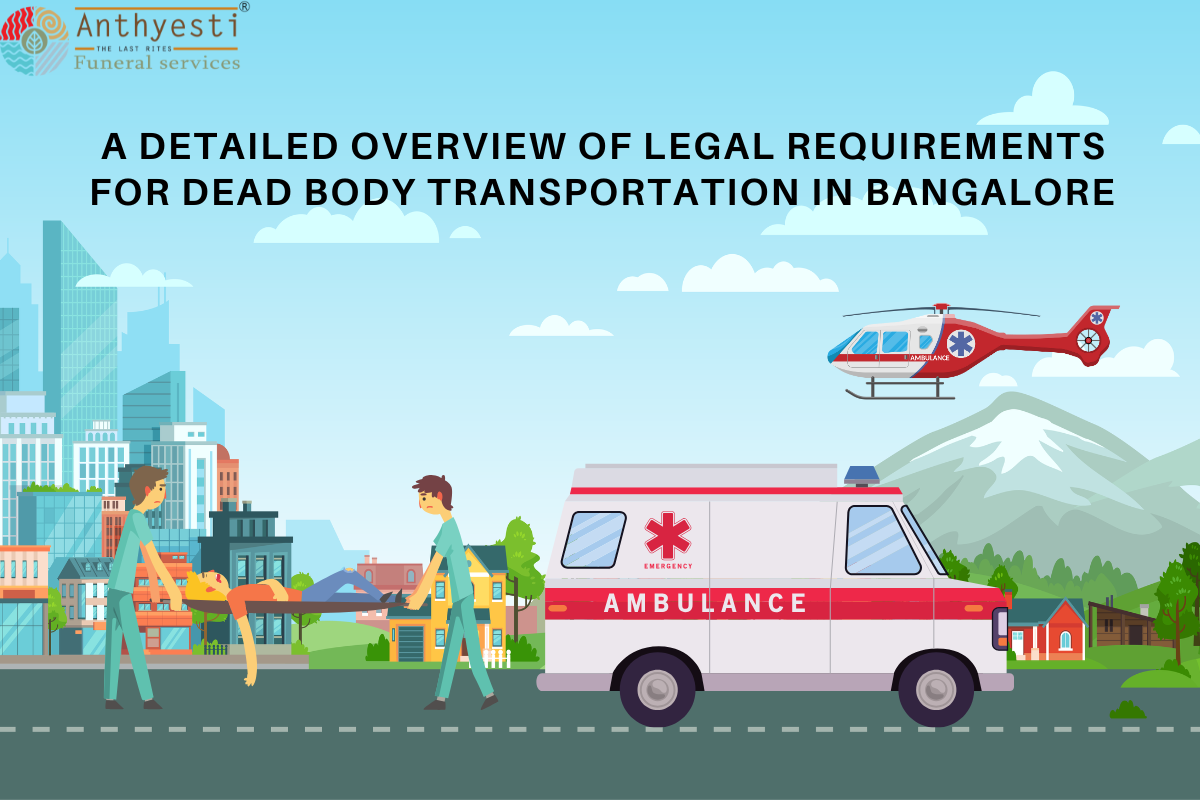A Detailed Overview of Legal Requirements for Dead Body Transportation in Bangalore
In Bangalore’s dynamic urban life, the topic of dead body transportation usually arises out of necessity, often catching families unprepared during their time of loss. This guide aims to demystify the legal intricacies involved in transporting a deceased individual, ensuring families can navigate these procedures with clarity and peace during such trying times.
The Importance of Adhering to Legal Standards:
Transporting a deceased body, whether within Bangalore or beyond, requires adherence to specific legal standards. These regulations are in place to uphold the dignity of the deceased and to ensure public health safety, which is crucial given Bangalore’s large and mobile population.
Required Legal Documents:
1. Death Certificate: The primary step in the process involves securing a death certificate from the medical facility where the death occurred or from the local municipal authority. This document is pivotal for several reasons, including authorizing the body’s transportation by confirming the death and its causes.
2. No Objection Certificate (NOC): To transport the deceased outside of Bangalore, it is mandatory to acquire an NOC from the local police. This certificate is crucial to certify that the death was not due to any unlawful circumstances.
3. Embalming Certificate: For transportation across long distances or international borders, the body must be embalmed. The facility performing the embalming must issue a certificate verifying that the body has been prepared in accordance with established health standards.
4. Cargo Certificate: When transporting by air, a cargo certificate is required to affirm that the body is securely sealed in an air-tight coffin, suitable for the flight.
Modes of Transportation
1. Road Transport: The most commonly used method for local transport is by road, typically in a hearse equipped to handle such sensitive transfers with dignity.
2. Air Transport: For inter-state or international transfers, air transport is preferred. This method adheres to strict guidelines that require thorough documentation and specific handling procedures.
3. Rail Transport: Although less common, rail transport is another option and follows similar requirements to those of road and air methods.
Conclusion:
Losing a loved one is profoundly challenging, and the added stress of legal procedures can be overwhelming. By understanding the legal requirements for dead body transportation in Bangalore, families can ensure the process is handled with respect and care. Anthyesti Funeral Services is committed to providing empathetic, comprehensive support to ease this difficult journey. For further assistance, please reach out to us directly.
FAQ’s:
Q1: How do I obtain a death certificate in Bangalore?
A1: You can acquire a death certificate by submitting an application and a medical confirmation of death to the local municipal body.
Q2: What is required for air transportation of a deceased body from Bangalore?
A2: For air transport, the body must be embalmed and encased in a certified coffin. Required documents include the death certificate, embalming certificate, and an NOC from local authorities.
Q3: Is it permissible to transport a deceased body in a private vehicle?
A3: While private vehicles can be used, a hearse is recommended for longer distances to comply with health and safety norms.
Q4: What costs are involved in transporting a deceased body in Bangalore?
A4: Costs vary based on the transportation mode and distance. Consulting with service providers like Anthyesti can provide specific pricing details.
Q5: Who should I contact for assistance in transporting a deceased body?
A5: Anthyesti Funeral Services offers round-the-clock support for dead body transportation, assisting with all necessary paperwork and logistics.
Call us at +91 87925 63332

